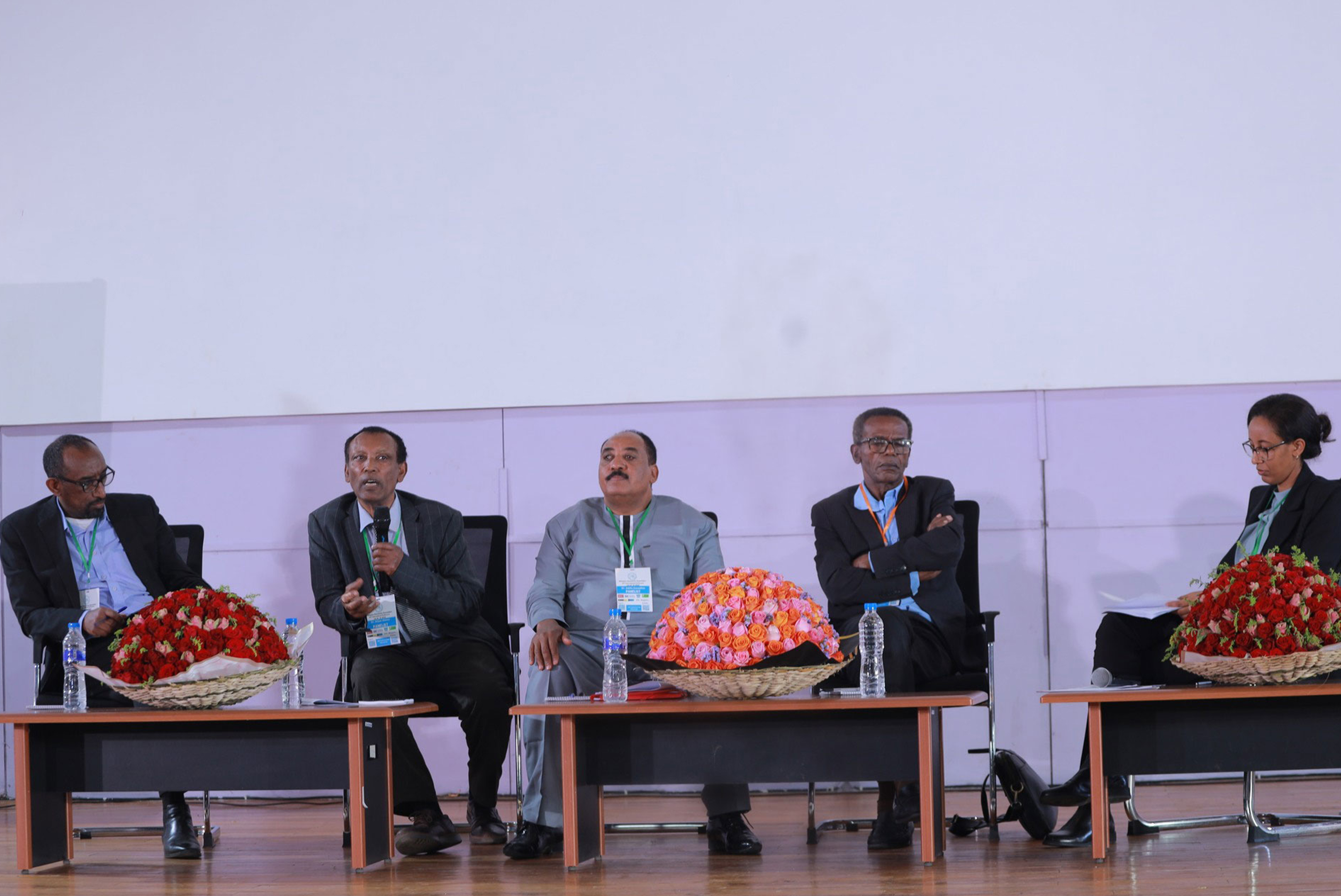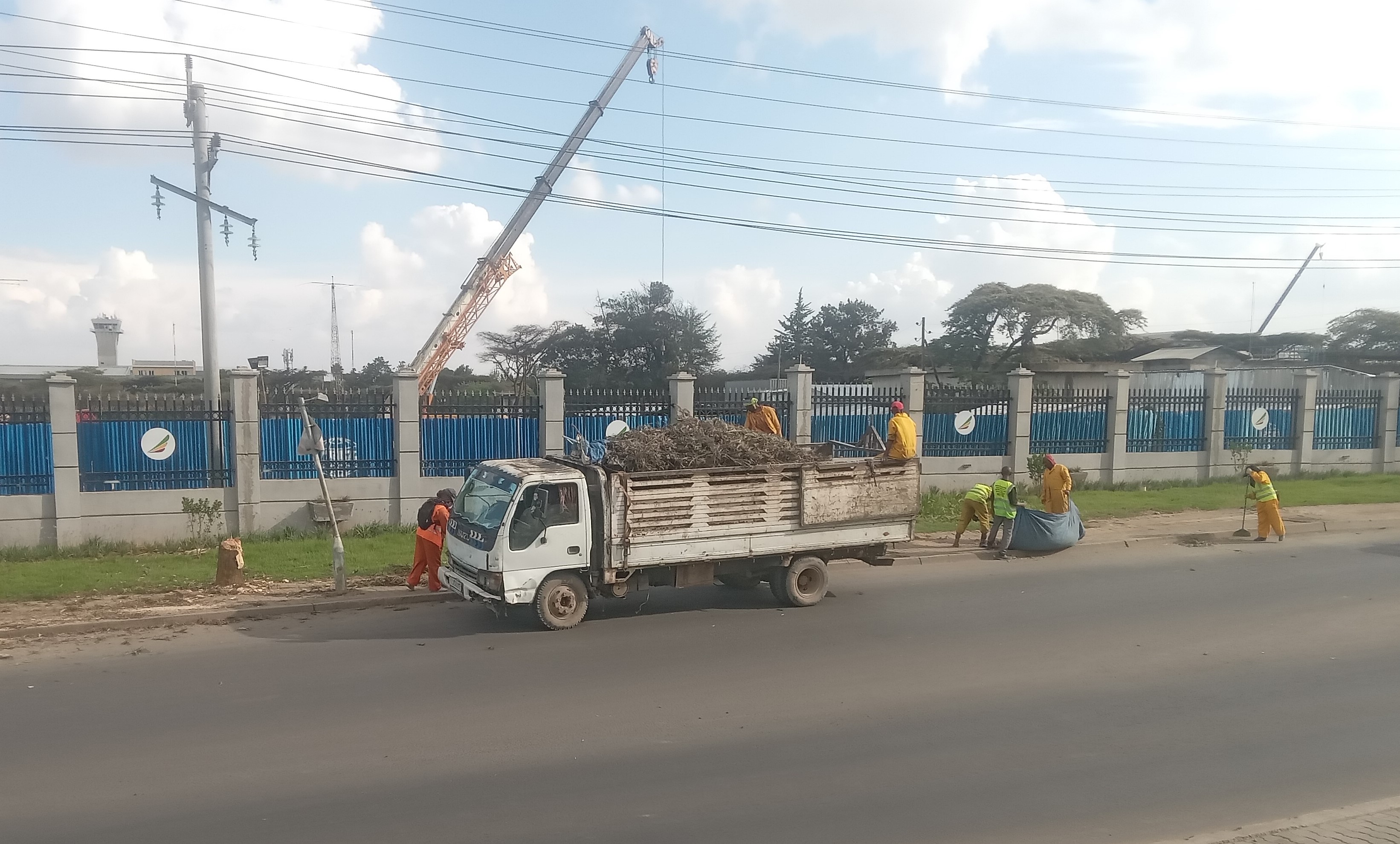
View From Arada | Aug 03,2019
Jun 17 , 2023
By Jayati Ghosh
The global food system is broken. Largely dominated by multinational corporations, it enables and encourages unsustainable and unhealthy production and consumption patterns and generates enormous waste across all stages of production and distribution.
The global food system also produces massive greenhouse-gas emissions, thereby inflicting substantial ecological damage and depriving small-scale farmers in many countries of secure and viable livelihoods. Perhaps worst of all, food access remains profoundly unequal, causing extreme hunger to increase rather than decline.
Addressing this multifaceted dysfunction represents a huge and complex undertaking. Given the apparent tension between responding to short-term price increases and implementing long-term strategies for more sustainable production and equitable distribution, any potential solution will likely involve difficult trade-offs.
The global fertilizer shortage is a case in point.
Prices soared in 2021, owing to the rising cost of natural gas, an essential input for nitrogen-based fertilizers, and continued to skyrocket in 2022 after the war in Ukraine triggered economic sanctions on Russia, a major fertilizer exporter. But it has become increasingly clear that companies exploited this crisis to raise prices more than the increase in costs. A recent study by GRAIN and the Institute for Agriculture & Trade Policy finds that the profits of the world's nine largest fertilizer companies increased from around 14 billion dollars in 2020 to 28 billion dollars the following year – and then soared to 49 billion dollars last year.
It is important to note that the rise in fertilizer prices was not due to higher sales volumes. Rather, the price increases reflected "greedflation": corporations leveraged supply shocks to increase their profit margins dramatically – from roughly 20pc of sales to 36pc within this period.
While fertilizer prices have declined somewhat since the start of the year, they remain exorbitantly high for most small farmers around the world. Farmers in predominantly low-income countries currently must pay nearly three times what they paid just a couple of years ago to fertilize their crops. As smallholder farmers sink deeper into debt, many are forced to reduce their fertilizer usage, which affects yields and threatens domestic food security.
The United Nations warned in late 2022 that high fertiliser prices threaten to turn the current "crisis of affordability" into a "crisis of availability."
To prevent further disruptions to food supply chains, the governments of India, Kenya and the Philippines have increased farmer subsidies, whereas the European Union (EU) has adopted measures to encourage domestic fertilizer production. But chemical fertilisers are associated with major ecological problems, posing risks to sustainable agriculture and the planet. In addition to accounting for 2.4pc of all greenhouse-gas emissions, chemical fertilizers are responsible for soil degradation, ozone depletion, biodiversity loss, and air pollution.
Given these risks, governments must avoid knee-jerk responses that will likely undermine ecological sustainability in the long run. Instead, policymakers must subsidize alternative agroecological technologies based on practices like crop rotation, natural fertilizers, and pesticides, which could help reduce reliance on chemical fertilizers while maintaining high yields. This approach would not only reduce costs for farmers, but also mitigate the environmental damage caused by nitrogen fertilizers.
These alternative technologies already exist. Although viable, they are the Cinderellas of agricultural policy, waiting for their immense potential to be recognized.
To be sure, this transition should not be pursued too rapidly. When Sri Lanka abruptly banned imports of chemical fertilizers in 2021, the result was a dramatic reduction in domestic food production and acute food shortages. But a growing body of evidence suggests that carefully implemented agroecological approaches could significantly boost productivity and soil quality and could be scaled up as needed.
Unfortunately, most private investments and foreign aid, both from public and private donors, continue to bet on the increased use of chemical fertilizers, rather than channelling more resources toward agroecological farming. For example, the Alliance for a Green Revolution in Africa (AGRA), founded in 2006 with the support of major foundations, advocates an industrial model of agriculture that involves extensive use of high-yielding seed varieties in conjunction with reliance on chemical fertilizers and pesticides.
Independent studies, as well as evaluations commissioned by AGRA itself, have found that the organization is far from meeting its goals of doubling yields and incomes for millions of smallholder African farmers. Meanwhile, farmers across the continent are increasingly vulnerable as they become more dependent on chemical fertilizers and other purchased inputs whose prices have soared.
To tackle the environmental challenges facing our world and mitigate the worst effects of climate change, we must reorient the global food system toward a more sustainable and equitable path. This requires transforming many areas of food production, particularly the highly oligopolistic markets for agricultural inputs and crops. Reducing our reliance on chemical fertilizers could turn the current food crisis into a genuine opportunity.
PUBLISHED ON
Jun 17,2023 [ VOL
24 , NO
1207]


View From Arada | Aug 03,2019

Commentaries | Jul 01,2023

Viewpoints | Jan 07,2023

Fortune News | Jul 27,2025

Radar | Jul 18,2020

Viewpoints | May 31,2025

In-Picture | Apr 13,2025

Fortune News | Jul 13,2025

Commentaries | Mar 23,2024

Radar | Nov 16,2024

Photo Gallery | 180254 Views | May 06,2019

Photo Gallery | 170451 Views | Apr 26,2019

Photo Gallery | 161474 Views | Oct 06,2021

My Opinion | 137267 Views | Aug 14,2021

Dec 22 , 2024 . By TIZITA SHEWAFERAW
Charged with transforming colossal state-owned enterprises into modern and competitiv...

Aug 18 , 2024 . By AKSAH ITALO
Although predictable Yonas Zerihun's job in the ride-hailing service is not immune to...

Jul 28 , 2024 . By TIZITA SHEWAFERAW
Unhabitual, perhaps too many, Samuel Gebreyohannes, 38, used to occasionally enjoy a couple of beers at breakfast. However, he recently swit...

Jul 13 , 2024 . By AKSAH ITALO
Investors who rely on tractors, trucks, and field vehicles for commuting, transporting commodities, and f...

Nov 1 , 2025
The National Bank of Ethiopia (NBE) issued a statement two weeks ago that appeared to...

Oct 25 , 2025
The regulatory machinery is on overdrive. In only two years, no fewer than 35 new pro...

Oct 18 , 2025
The political establishment, notably the ruling party and its top brass, has become p...

Oct 11 , 2025
Ladislas Farago, a roving Associated Press (AP) correspondent, arrived in Ethiopia in...

Nov 2 , 2025
The National Bank of Ethiopia (NBE) has scrapped the credit-growth ceiling that had s...

Nov 2 , 2025 . By SURAFEL MULUGETA
The burgeoning data mining industry is struggling with mounting concerns following th...

Nov 2 , 2025 . By YITBAREK GETACHEW
Berhan Bank has chosen a different route in its pursuit of a new headquarters, opting for a transitional building instea...

Nov 2 , 2025 . By BEZAWIT HULUAGER
Nib International Bank S.C. has found itself at the epicentre of a severe governance...